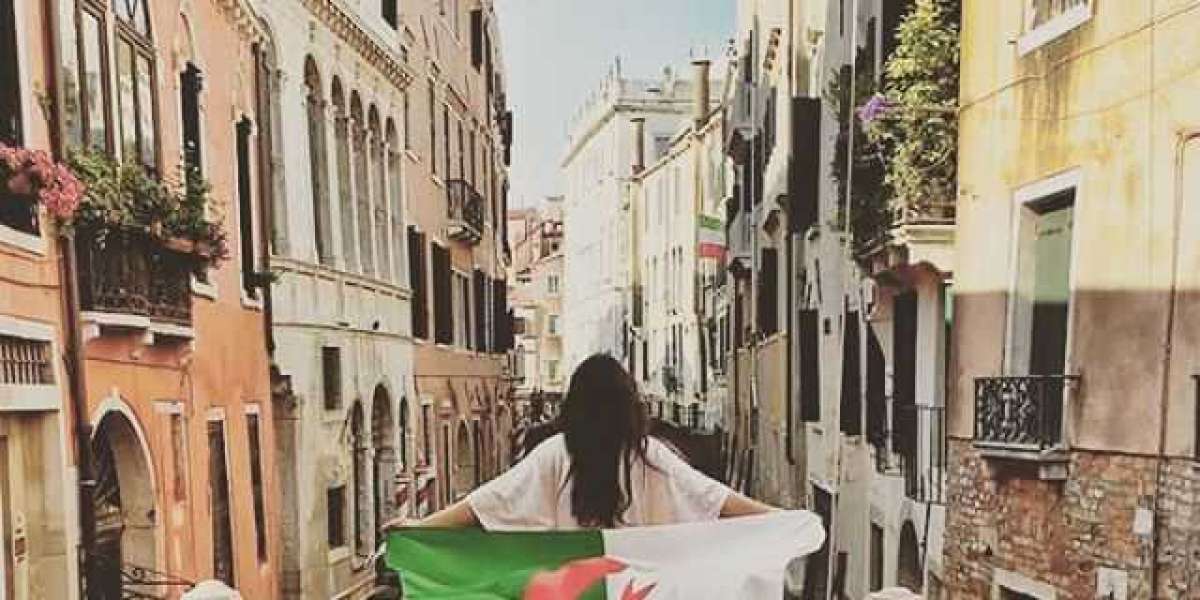Think you know Algeria? Think again. This North African nation, often overshadowed by its neighbors, is a land of dramatic contradictions and breathtaking wonders. It’s a place where ancient Roman ruins stand against Saharan dunes and where bustling Mediterranean cities hum with a unique cultural fusion. For those planning to discover its charms, finding great hotels in Algeria is the first step to an unforgettable journey. Ready to have your mind blown? Let’s dive into twenty astonishing facts about Algeria that will change the way you see this incredible country.
First, let's get our bearings with some key facts.
Key Facts About Algeria at a Glance
| Aspect | Detail |
|---|---|
| Population | 47,328,137 |
| Official Languages | Arabic and Tamazight |
| Capital | Algiers |
| Area | 2,381,741 sq km (919,595 sq mi) |
| Coastline | 2,148 km (1,335 mi) |
1. It’s a Genuine Giant.
Algeria isn't just a large country; it is the largest country in the entire continent of Africa. To put it in perspective, it's also the tenth-largest nation in the world. Its vast territory means it boasts an incredibly diverse landscape.
2. Most of It is Empty… But Beautifully So.
Here’s a fact that puts its size into context: a staggering 90% of the population lives along the fertile Mediterranean coast. Why? Because about 80% of the country is covered by the magnificent Sahara Desert, making much of the interior sparsely inhabited but endlessly captivating.
3. The Capital is Known as "The White City."
Algiers, the capital, earned the nickname "Alger la Blanche" for its stunning, sun-bleached white buildings cascading down the hills towards the sea. It’s a city where Ottoman palaces and French colonial boulevards tell the story of a rich and layered history.
4. It Has a Deep Roman History.
Long before the desert caravans, Algeria was a crucial part of the Roman Empire. The country is home to spectacular Roman ruins, including Timgad, a military colony founded by Emperor Trajan in 100 CE, and Djémila, known for its well-preserved temples and theaters.
5. Independence Was Hard-Fought.
Algeria gained its independence from France on July 5, 1962, after a brutal eight-year war. The conflict was devastating, with estimates suggesting around 400,000 Algerians lost their lives. This struggle for freedom is deeply embedded in the national psyche.
6. The National Anthem is a Battle Cry.
Reflecting its revolutionary spirit, the national anthem, "Qassaman," is a powerful war song adopted in 1962. Its lyrics are a solemn vow and a stark reminder of the fight for liberation, even foreshadowing a “day of reckoning” for the former colonial power.
7. It’s an Energy Superpower.
Beneath the sand lies immense wealth. Algeria is the sixth-largest exporter of natural gas globally and sits on the tenth-largest reserves. This makes it a key player in the world’s energy markets and the backbone of its own economy.
8. But Wealth Doesn’t Tell the Whole Story.
Despite its natural resource wealth, which classifies it as an upper-middle-income country, poverty remains a challenge. Astonishingly, one in four Algerians is estimated to live on less than a dollar a day, a stark contrast to the national income from hydrocarbons.
9. It’s a UNESCO Treasure Trove.
History buffs, take note. Algeria is home to seven UNESCO World Heritage Sites. These range from the prehistoric rock art galleries of Tassili n’Ajjer to the unique desert architecture of the M’Zab Valley and the Ottoman-era Kasbah of Algiers.
10. It Boasts a Record-Breaking Mosque.
In its capital, you’ll find the Djamaa el Djazaïr, or the Great Mosque of Algiers. This modern marvel holds two incredible titles: it has the tallest minaret in the world at 270 meters (870 feet) and is the third-largest mosque on the planet.
11. The National Animal is Adorably Unique.
Meet the Fennec Fox, Algeria’s national animal. This tiny creature, the world’s smallest canine, is perfectly adapted to desert life with its enormous ears. It’s so beloved that the national soccer team is nicknamed "Les Fennecs" in its honor.
12. It’s a Haven for an Elusive Big Cat.
The vast Sahara provides a home for the critically endangered Saharan cheetah. It’s believed that fewer than 500 of these majestic animals remain in the wild, with most of them finding refuge in Algeria’s remote desert landscapes.
13. You’ll Be Greeted with Dates and Milk.
Algeria is the tenth-largest producer of dates in the world. The fruit is a cultural staple, so much so that offering dates and milk to guests is a traditional sign of hospitality, especially in the southern oasis towns.
14. The Legal System is a Unique Blend.
Algeria’s legal framework is a fascinating mix of its colonial past and its Islamic identity, combining French civil law and Sharia law. The official religion is Islam, and it is illegal to proselytize any other faith.
15. It Once Had a Camel Cavalry.
During the French colonial period, the Méhariste units—camel cavalry recruited from nomadic tribes—patrolled the immense Sahara Desert. These unique forces were even deployed during World War II before being disbanded after independence in 1962.
16. The Cuisine is a Delicious Melting Pot.
Algerian food is a flavorful journey through history. The national dish is couscous, introduced by the Berbers. Over centuries, Arabs brought spices, the Spanish brought olives and citrus, and the French introduced their café culture and bread.
Here are the top 5 must-try Algerian dishes:
Couscous: Steamed semolina served with meat, vegetables, or as a sweet dish.
Mechoui: A whole lamb slow-roasted to perfection.
Chakchouka: A savory stew of tomatoes, peppers, and poached eggs.
Merguez: Spicy lamb or beef sausages.
Brik: A thin, crispy pastry filled with egg, tuna, or meat.
17. It Has a Complex Linguistic Identity.
While Arabic and Tamazight are the official languages, French is widely spoken, a lingering influence of the colonial era. The Amazigh (Berber) community has worked to preserve their language and cultural heritage, which is now officially recognized.
18. It Shares a Long and Sometimes Tense Border.
Algeria shares its longest border with Morocco (969 miles), a relationship marked by historical conflict like the Sand War of 1963. In contrast, it recently opened a new border post with Mauritania in 2024 to boost trade and cooperation.
19. It Faces Significant Environmental Challenges.
Despite not being a major contributor to climate change, Algeria battles desertification and water pollution from industrial waste. The government is pursuing sustainable development, though renewable energy only accounted for 3% of its electricity as of 2023.
20. Its Climate Will Surprise You.
While it’s home to the Sahara and recorded a feels-like temperature of 138.38°F (59.1°C) in 2024, Algeria ranks only 117th in the world for average annual temperature. The coastal north enjoys a pleasant Mediterranean climate, proving the country is full of delightful surprises. Algeria is a land of hidden depths, waiting to be discovered by curious travelers.







